If you’re new to low-carb fasting, you might wonder: What’s the secret to staying energized and avoiding those dreaded side effects? The answer lies in supplements. These tiny powerhouses can fill the nutritional gaps that sometimes occur during fasting, ensuring your journey is smooth, healthy, and effective.
In this guide, we’ll explore the best supplements for low carb fasting, why they matter, and how to incorporate them into your routine.
Understanding Low-Carb Fasting
Low-carb fasting combines the principles of reducing carbohydrate intake with the structured eating patterns of intermittent fasting. It’s a growing trend among health enthusiasts looking to optimize weight loss, boost energy, and enhance overall well-being. But what exactly is low-carb fasting, and why has it gained such a loyal following? Let’s break it down. (1)
What Is Low-Carb Fasting?
Low-carb fasting is a hybrid approach that involves:
- Minimizing Carbohydrate Intake: Typically, this means consuming fewer than 50 grams of carbs per day, pushing the body to use fat as its primary fuel source.
- Time-Restricted Eating: Incorporating fasting windows (e.g., 16 hours of fasting followed by an 8-hour eating window).
By combining these two strategies, your body enters ketosis, a metabolic state where it burns stored fat for energy instead of relying on glucose from carbohydrates.
Types of Low-Carb Fasting
Low-carb fasting isn’t a one-size-fits-all approach. Here are a few popular methods:
- 16:8 Intermittent Fasting: Fast for 16 hours and eat during an 8-hour window while following a low-carb or ketogenic diet. (2)
- 5:2 Diet: Eat normally for five days, but restrict your calorie intake to 500-600 calories (with low carbs) on two non-consecutive days. (3)
- Alternate-Day Fasting (ADF): Alternate between a day of eating (low carb) and a day of fasting.
- One Meal a Day (OMAD): Consume one low-carb meal daily and fast for the rest of the day. (4)
Each method has its benefits and challenges, so it’s essential to choose one that aligns with your lifestyle and goals.
Health Benefits of Low-Carb Fasting
Low-carb fasting offers a unique synergy between the benefits of a low-carb diet and fasting. Here’s what you can expect:
- Enhanced Fat Burning
- When you reduce carbs, your body shifts to burning fat for fuel, a process known as lipolysis.
- Fasting accelerates this process by depleting glycogen stores, pushing your body deeper into fat-burning mode.
- Improved Blood Sugar Control
- Low-carb fasting helps stabilize blood sugar levels by reducing insulin spikes.
- This is particularly beneficial for those with insulin resistance or type 2 diabetes.
- Weight Loss and Appetite Suppression
- Combining low-carb eating with fasting reduces hunger hormones like ghrelin, making it easier to eat less.
- You may notice more consistent weight loss compared to traditional diets.
- Mental Clarity and Focus
- Cardiovascular Health
- Studies suggest that low-carb fasting may lower triglycerides and improve HDL (“good”) cholesterol levels, promoting heart health.
Common Challenges of Low-Carb Fasting
While the benefits are exciting, low-carb fasting does come with its own set of challenges, particularly for beginners. These include:
- The “Keto Flu”
- As your body adjusts to burning fat instead of carbs, symptoms like headaches, fatigue, and irritability may occur.
- Solution: Replenish electrolytes (sodium, potassium, magnesium) to ease the transition.
- Hunger and Cravings
- Adjusting to both fasting and low-carb eating can amplify hunger in the early days.
- Solution: Eat nutrient-dense, high-fat meals during eating windows to feel fuller longer.
- Energy Slumps
- During the initial stages, your body may struggle to produce enough energy due to depleted glycogen stores.
- Solution: Incorporate MCT oil or exogenous ketones for a quick energy boost.
- Digestive Issues
- Reduced fiber intake can lead to constipation.
- Solution: Add fiber supplements like psyllium husk or chia seeds to your diet.
How Low-Carb Fasting Differs From Other Diets
Unlike calorie-restricted diets that focus on simply eating less, low-carb fasting emphasizes:
- Nutrient Timing: When you eat is as important as what you eat.
- Metabolic Adaptation: It trains your body to burn fat more efficiently.
- Sustainable Weight Loss: By reducing insulin spikes and hunger, it’s easier to maintain over the long term.
The Role of Supplements in Low-Carb Fasting
When following a low-carb fasting regimen, your body undergoes significant changes. As carbohydrate intake decreases and fasting windows extend, your body transitions to burning fat for energy. While this process offers numerous benefits, it also presents unique challenges that supplements can help address. In this section, we’ll explore why supplements are essential, their benefits, and the risks of neglecting them.
Why Are Supplements Necessary During Low-Carb Fasting?
When you adopt a low-carb fasting lifestyle, you’re asking your body to work harder in several ways:
- Electrolyte Imbalance:
Low-carb diets naturally lead to a loss of water weight as glycogen stores are depleted. Unfortunately, this also means losing essential electrolytes like sodium, potassium, and magnesium, which are critical for hydration and muscle function. - Nutrient Deficiencies:
Restricting certain food groups can inadvertently lower your intake of key nutrients, such as fiber, omega-3s, and B vitamins. Over time, these deficiencies can cause fatigue, digestive discomfort, and even long-term health issues. - Energy and Performance Support:
As your body shifts from using glucose to burning fat for fuel, you may experience energy slumps, especially in the early stages of fasting. Supplements like MCT oil can provide an instant energy boost, helping you stay active and focused. - Recovery and Muscle Maintenance:
During fasting, your body might tap into muscle protein for energy. Protein supplements can prevent muscle loss while supporting recovery after exercise.
How Supplements Enhance Low-Carb Fasting
Integrating the right supplements into your routine can optimize the benefits of low-carb fasting. Here’s how:
- Boosts Energy Levels
- Exogenous ketones and MCT oil supply readily available energy, keeping you focused and energized throughout the day.
- These are especially useful during the “keto flu” phase, where energy levels may dip as your body adapts to ketosis.
- Supports Metabolism
- B vitamins play a crucial role in energy production by helping your body metabolize fats and proteins more efficiently.
- B vitamins play a crucial role in energy production by helping your body metabolize fats and proteins more efficiently.
- Prevents Electrolyte Imbalance
- Electrolyte supplements maintain hydration and prevent common symptoms like muscle cramps, fatigue, and dizziness.
- Electrolyte supplements maintain hydration and prevent common symptoms like muscle cramps, fatigue, and dizziness.
- Improves Digestive Health
- Fiber supplements alleviate constipation, which is a common issue when transitioning to a low-carb diet due to reduced fiber intake.
- Fiber supplements alleviate constipation, which is a common issue when transitioning to a low-carb diet due to reduced fiber intake.
- Enhances Mental Clarity
- Omega-3 fatty acids and ketone-producing supplements help fuel brain function, promoting sharper focus and better mood.
What Happens If You Skip Supplements?
Failing to support your body with the right supplements during low-carb fasting can lead to:
- Dehydration: Without replenishing electrolytes, dehydration can result in headaches, fatigue, and lightheadedness.
- Fatigue and Brain Fog: A lack of key nutrients like omega-3s or B vitamins can impair mental clarity and energy levels.
- Muscle Loss: Skipping protein intake during fasting may lead to muscle breakdown, especially if you’re physically active.
- Constipation and Digestive Issues: Reduced fiber intake can slow down digestion, leading to bloating and discomfort.
Essential Supplements for Low Carb Fasting
1. Electrolytes
When cutting carbs, your body loses electrolytes like sodium, potassium, and magnesium, which can lead to the infamous “keto flu.”
- Why You Need Them: Electrolytes prevent fatigue, muscle cramps, and headaches.
- Top Picks:
- Magnesium glycinate or citrate
- Potassium Citrate
- Sodium (in the form of sea salt)

Enhance your keto journey with Vitamin Bounty Burn On Keto Multivitamin! Specially formulated with Magnesium, Potassium, and MCT, it provides energy, cramp relief, and essential nutrients for optimal performance. Designed for keto enthusiasts, this supplement supports hydration, muscle function, and sustained energy, keeping you at your best every day.

2. Omega-3 Fatty Acids
Omega-3 fatty acids are essential for reducing inflammation and supporting heart and brain health.
- Why You Need Them: Balances the omega-6 to omega-3 ratio, which is crucial in low-carb diets.
- Top Picks:
- Fish oil supplements
- Krill oil
Triple Strength Omega 3 Fish Oil
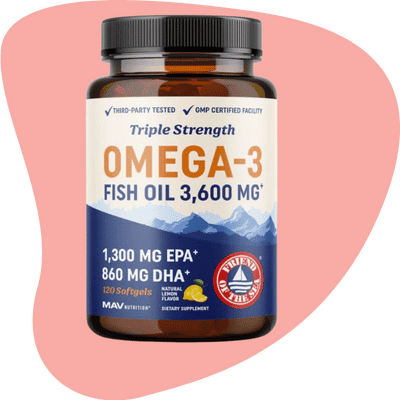
Support your heart, brain, and joint health with Triple Strength Omega 3 Fish Oil 3600 mg! Sourced from premium wild-caught fish, this burpless formula delivers over 2100mg of Omega-3 fatty acids, including 1300mg EPA and 860mg DHA, for maximum wellness benefits. Experience the power of essential fatty acids for inflammation support, cognitive function, and overall vitality.

3. Vitamin D
Dubbed the “sunshine vitamin,” vitamin D is critical for bone health and immunity.
- Why You Need It: Many people are deficient in vitamin D, especially during winter or with minimal sun exposure.
- Top Picks:
- Vitamin D3 with K2
NatureWise Vitamin D3
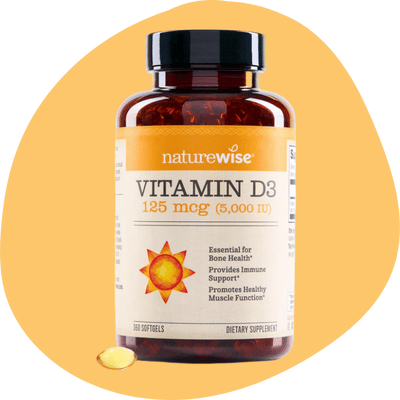
Support your immune system and muscle health with NatureWise Vitamin D3 5000iu (125 mcg)! Packed in cold-pressed olive oil for better absorption, these non-GMO, gluten-free mini softgels provide a convenient one-year supply. Promote bone strength, immune resilience, and overall wellness with this high-quality, easy-to-swallow supplement.

4. B Vitamins
B vitamins, especially B12 and B6, are essential for energy metabolism.
- Why You Need Them: Low-carb diets can reduce your intake of B vitamins, leading to fatigue.
- Top Picks:
- B-complex supplements
NUTRAMIN Daily Vegan Keto Multivitamin Gummies
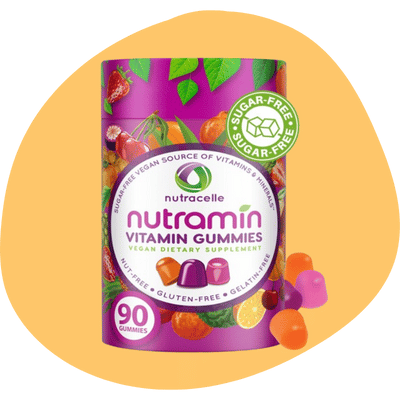
Support your health with NUTRAMIN Daily Vegan Keto Multivitamin Gummies! These plant-based, sugar-free gummies are packed with essential nutrients like Vitamin C, D, Zinc, Biotin, and Vitamins A, B6, and B12 for immunity, energy, and overall wellness. Non-GMO, nut-free, and gluten-free, they’re perfect for keto and vegan lifestyles. Stay healthy the delicious way!

5. Fiber Supplements
Fiber is often lacking in low-carb diets, leading to digestive discomfort.
- Why You Need It: Promotes gut health and prevents constipation.
- Top Picks:
- Psyllium husk
- Acacia fiber
Ultra-Fiber
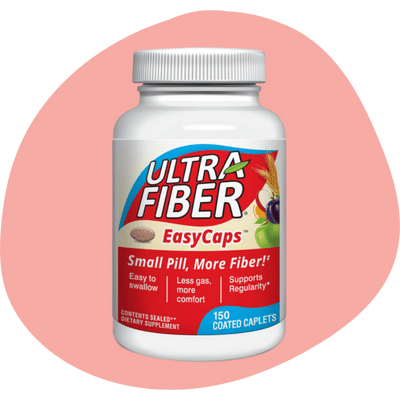
Experience gentle digestive support with Caplets – The Small Pill with More Fiber! Designed for convenience and effectiveness, these compact caplets deliver powerful fiber support to promote regularity and gut health. Easy to swallow and perfect for daily use, they help maintain a healthy digestive system without the hassle.

6. Protein Supplements
Maintaining muscle mass during fasting requires adequate protein.
- Why You Need It: Prevents muscle breakdown and supports recovery.
- Top Picks:
- Whey protein isolate
- Collagen peptides
Orgain Organic Vegan Protein
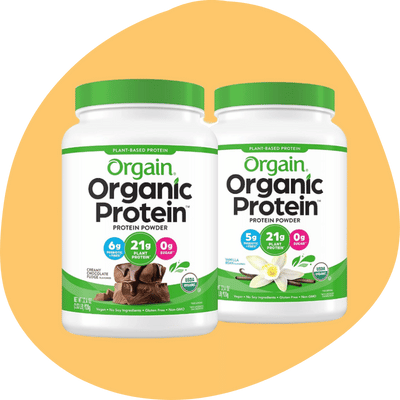
Fuel your body with Orgain Organic Vegan Protein Powder in delicious Vanilla Bean and Chocolate Fudge flavors! Packed with 21g of plant-based protein per serving, this clean, organic formula is perfect for post-workout recovery, meal replacement, or a healthy snack. Non-GMO, gluten-free, and free from artificial ingredients, it’s a wholesome choice for your active lifestyle.

7. MCT Oil
MCT oil is a superstar in the low-carb world. It provides quick, clean energy and helps boost ketone production.
- Why You Need It: Enhances energy and mental clarity.
- Top Picks:
- Pure MCT oil
- Coconut oil
Kiss My Keto
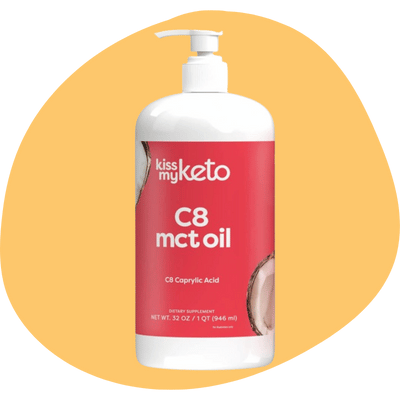
Elevate your keto lifestyle with Kiss My Keto MCT Oil C8! This 32 oz pure C8 MCT oil, rich in caprylic acid, provides clean, fast-acting energy for your brain and body. Made from premium coconut oil, it’s perfect for fueling workouts, enhancing mental clarity, and supporting fat-burning. With a convenient pump bottle, this liquid MCT oil is easy to add to coffee, smoothies, or recipes. Stay energized and focused the keto way!

Choosing Quality Supplements
When it comes to low-carb fasting, not all supplements are created equal. Choosing the right supplements isn’t just about picking something off the shelf; it’s about ensuring what you take is effective, safe, and aligns with your body’s needs. High-quality supplements can significantly affect your results and overall well-being, while poorly made ones can be ineffective or even harmful. Let’s dive into the key factors you should consider when choosing the best supplements for low carb fasting. (5)
Why Quality Matters in Supplements
The supplement industry is vast and unregulated in many regions, meaning that not all products meet the same standards. Here’s why prioritizing quality is crucial:
- Effectiveness: High-quality supplements are formulated to deliver the proper dosage of active ingredients your body needs. Low-quality options often under-deliver.
- Safety: Inferior supplements may contain contaminants, fillers, or harmful additives that can negatively affect your health.
- Absorption: Poor-quality supplements may not be easily absorbed by your body, rendering them less effective.
- Value for Money: Investing in high-quality products ensures you’re getting the most benefit for your dollar.
What to Look for in Quality Supplements
Choosing the right supplements doesn’t have to be overwhelming. Keep these factors in mind when evaluating products:
Third-Party Testing and Certifications
Look for supplements tested by independent labs. Certifications like USP (United States Pharmacopeia), NSF International, or Informed Choice indicate that the product has been verified for quality, purity, and potency.
- Why It’s Important: Third-party testing ensures the product contains exactly what’s on the label without harmful contaminants.
- What to Look For: A seal or certification from a recognized organization on the packaging.
Transparent Ingredient Labels
A reputable supplement brand will list all ingredients, including dosages and sources. Beware of proprietary blends, which can hide ingredient amounts.
- Why It’s Important: Transparency lets you know exactly what you’re putting into your body and helps you avoid allergens or unnecessary fillers.
- What to Avoid: Products with vague labels, artificial colors, or unnecessary binders and fillers.
Bioavailability
Bioavailability refers to how well the supplement is absorbed by the body. High-quality products use more easily absorbed forms of nutrients.
- Examples:
- Magnesium glycinate or citrate (better absorbed than magnesium oxide).
- Fish oil with high levels of EPA and DHA (more effective omega-3s).
- Vitamin D3 (more bioavailable than D2).
Source and Manufacturing Practices
Quality supplements are made with premium ingredients and follow strict manufacturing guidelines.
- What to Look For:
- Sourced from natural or organic ingredients whenever possible.
- Manufactured in facilities that comply with GMP (Good Manufacturing Practices).
- Red Flags: Low-cost supplements made in unregulated facilities or lacking transparency about their sourcing.
Allergens and Additives
Avoid products containing unnecessary additives, sugars, or common allergens like gluten, soy, or dairy unless specifically needed.
- Why It’s Important: These additives can cause digestive discomfort, interfere with absorption, or negate the benefits of your low-carb fasting regimen.
Dosage Accuracy
Ensure the product delivers clinically effective dosages of key ingredients. Some supplements are under-dosed, making them ineffective, or overdosed, increasing the risk of side effects.
- What to Look For: Supplements that match scientifically recommended dosages, not just trendy buzzwords on the label.
Timing and Dosage of Supplements
When incorporating supplements into your low-carb fasting regimen, getting the timing and dosage right is just as important as choosing the right products. Proper timing ensures that the supplements work effectively with your body’s natural rhythms and fasting windows, while accurate dosages help you avoid over- or under-supplementing. In this guide, we’ll break down the optimal times to take key supplements, recommended dosages, and how to maximize their benefits during low-carb fasting.
Why Timing Matters
The timing of your supplements can significantly impact their effectiveness. Here’s why:
- Fasting State vs. Feeding State: Certain supplements work best when taken on an empty stomach, while others are more effective when consumed with food.
- Absorption: Some nutrients, like fat-soluble vitamins (A, D, E, and K), require dietary fat for absorption, making it essential to take them with meals.
- Energy and Recovery: Supplements like MCT oil or protein powders are most beneficial at specific times, such as pre-workout or post-workout, depending on your goals.
Optimal Timing for Key Supplements
Here’s a detailed breakdown of when to take the most important supplements for low carb fasting:
1. Electrolytes
- When to Take: Spread throughout the day, especially during fasting periods.
- Why: Electrolytes (sodium, potassium, magnesium) prevent dehydration, muscle cramps, and fatigue.
- How:
- Start your day with an electrolyte drink or add a pinch of Himalayan salt to your water.
- Take magnesium in the evening to promote relaxation and better sleep.
- Dosage:
- Sodium: 3,000–5,000 mg/day (depending on activity level).
- Potassium: 2,000–3,500 mg/day.
- Magnesium: 300–400 mg/day.
2. MCT Oil
- When to Take: Morning or before a workout.
- Why: MCT oil provides quick energy by converting directly into ketones, making it perfect for starting your day or fueling a workout.
- How:
- Add 1–2 tablespoons to your coffee (popularly known as “bulletproof coffee”).
- Take it 30 minutes before exercise for a sustained energy boost.
- Dosage: Start with 1 tablespoon per day to avoid digestive issues, gradually increasing to 2–3 tablespoons.
3. Omega-3 Fatty Acids
- When to Take: With a meal, ideally one containing fat.
- Why: Omega-3s are fat-soluble, meaning they require dietary fat for optimal absorption.
- How: Take with your largest meal of the day for better absorption.
- Dosage: 1,000–2,000 mg of combined EPA and DHA daily.
4. Vitamin D
- When to Take: With your first meal of the day that contains fat.
- Why: Like omega-3s, vitamin D is fat-soluble, so taking it with dietary fat enhances absorption.
- How: Pair with other fat-soluble vitamins (e.g., K2) for synergistic effects.
- Dosage: 2,000–5,000 IU per day, based on your vitamin D levels.
5. B-Complex Vitamins
- When to Take: In the morning or early afternoon.
- Why: B vitamins support energy metabolism, making them ideal for the start of your day.
- How: Take on an empty stomach or with a light snack.
- Dosage: Follow the product’s recommended dosage, typically 50–100% of the daily value for each B vitamin.
6. Fiber Supplements
- When to Take: In the evening or before bedtime.
- Why: Fiber aids digestion and can help regulate bowel movements, making it a good choice for winding down the day.
- How: Mix psyllium husk or acacia fiber with water or a low-carb beverage.
- Dosage: 5–10 grams daily, depending on your dietary fiber intake.
7. Protein Supplements
- When to Take: After workouts or during your eating window.
- Why: Protein supports muscle repair and prevents muscle loss during fasting.
- How:
- Mix whey protein isolate or collagen peptides with water or almond milk.
- Use as a meal replacement during your eating window if needed.
- Dosage: 20–30 grams per serving, depending on your protein needs.
8. Exogenous Ketones
- When to Take: Mid-morning or before workouts.
- Why: Exogenous ketones enhance ketosis, providing quick energy and reducing the symptoms of the “keto flu.”
- How: Mix with water or a low-carb drink.
- Dosage: 10–15 grams per serving, up to twice daily.
Avoiding Over-Supplementation
While supplements are beneficial, taking too much can lead to adverse effects. Here’s how to avoid overdoing it:
- Stick to Recommended Dosages: Always follow the guidelines provided on the product label or as directed by your healthcare provider.
- Monitor Side Effects: Watch for signs of over-supplementation, such as digestive issues (common with MCT oil) or headaches (possibly with too much magnesium).
- Cycle Certain Supplements: For example, taking breaks from exogenous ketones can help prevent dependency.
Tips for Incorporating Supplements into Your Routine
- Set Reminders: Use apps or alarms to remind yourself to take supplements at the right times.
- Pair with Habits: Link supplements to daily routines, such as taking electrolytes with your morning water or omega-3s with dinner.
- Track Your Intake: Keep a journal or app log to monitor dosages and any noticeable effects.
Potential Side Effects and Precautions
Even the best supplements for low carb fasting can cause side effects if not used properly.
- Electrolytes: Overuse can lead to diarrhea or high blood pressure.
- Omega-3s: Excessive doses may thin the blood.
- Vitamin D: Over-supplementation can result in toxicity.
Always consult a healthcare provider before starting new supplements.
Integrating Supplements into Your Routine
Here are some practical tips:
- Create a schedule to stay consistent.
- Use apps or journals to track supplement intake and benefits.
- Adjust your regimen based on how your body feels.
Frequently Asked Questions (FAQs)
1. Can I take supplements while fasting?
Yes, most supplements won’t break your fast, but check for added sugars or calories.
2. Will supplements break my fast?
Pure supplements like electrolytes and MCT oil typically don’t affect fasting.
3. How do I know if I need supplements during low-carb fasting?
Listen to your body. Symptoms like fatigue or cramps may indicate deficiencies.
4. Are there any supplements I should avoid during low-carb fasting?
Avoid sugary or carb-laden supplements, as they can disrupt ketosis.
5. Can supplements replace a balanced diet during low-carb fasting?
No, supplements enhance your diet but can’t replace whole, nutrient-dense foods.
The Bottom Line
Incorporating the best supplements for low carb fasting into your routine can make a world of difference. From replenishing electrolytes to boosting energy with MCT oil, these supplements are your ultimate allies. Remember to prioritize quality, consult a professional, and listen to your body for the best results.







0 Comments